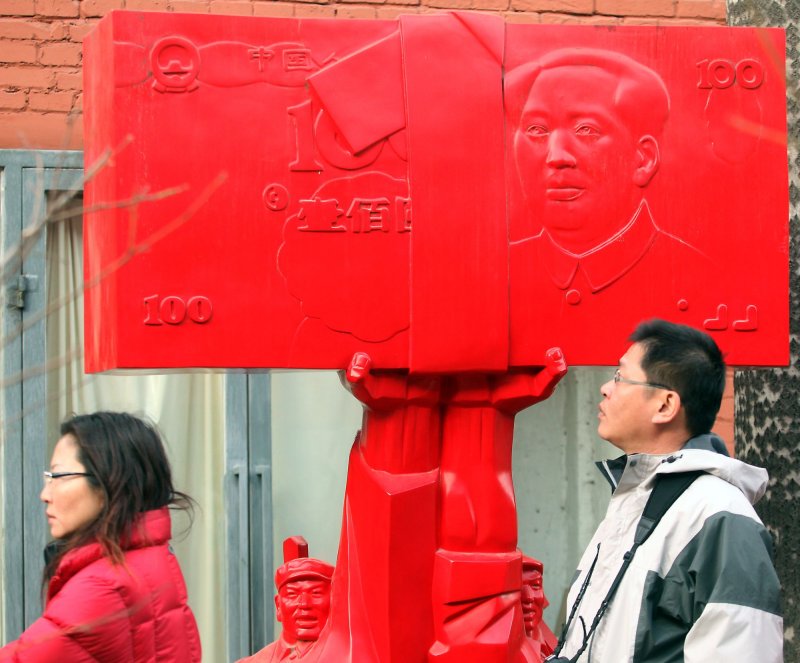Chinese walk past an art installation piece described as 'socialist workers upholding the strength of China's wealth' placed on a sidewalk in an international art zone in Beijing December 5, 2010. The Chinese yuan rose to a new hight against the U.S. dollar this year, taking a first step toward greater flexibility the Chinese central bank promised when it eased the currency's peg in recent months. UPI/Stephen Shaver |
License Photo
WASHINGTON, Feb. 11 (UPI) -- The International Monetary Fund has suggested a replacement for the U.S. dollar as the world's reserve currency, but one that is not a different currency.
In a report issued this week, the IMF said Special Drawing Rights, which were created in 1969 to represent a claim on currency among IMF members, could have an expanded role in the international financial system.
SDRs are converted, at the request of a borrower, into whatever currency the borrower chooses. The rates are set by the IMF against a basket of other currencies and are, thus, more stable than the U.S. dollar, CNNMoney reported Friday.
IMF Managing Director Dominique Strauss-Kahn said SDRs have a few "technical hurdles" to overcome but that "over time, there may be also a role for the SDR to contribute to a more stable international monetary system," he said.
Analysts say the system could stabilize energy prices, as oil is traded in dollars. As such, when the dollar declines in value oil is more affordable overseas, making the dollar responsible for some of the spikes in energy costs.
At a news conference in Washington, Fred Bergsten, director of the Peterson Institute for International Economics, said creating $2 trillion worth of SDRs in the next several years would "further diversify the system."










